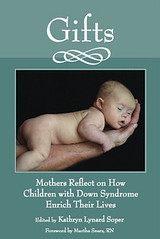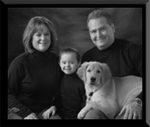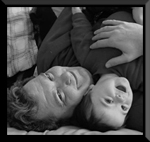If the Test Says Down syndrome
We need a prenatal screening process without a bias toward abortion.
By Patricia E. Bauer
Friday, November 16, 2007; Page A33
All across the land this fall, people have been gathering to promote awareness and acceptance of Down syndrome. Central to their message is the idea that people with the condition are valued family members who lead happy, fulfilling lives.
At the National Institutes of Health and the Centers for Disease Control and Prevention, scientists have been meeting to develop research agendas to improve the lives of people with Down syndrome, the genetic condition that results when a person has three copies of the 21st chromosome instead of the usual pair.
But in the places where medicine is practiced, a very different and less benevolent awareness of Down syndrome reigns. As a result of recent changes in technology and standards of care, women are undergoing prenatal diagnostics for Down syndrome in unprecedented numbers -- often multiple times during their pregnancies. When the condition is detected, they are having abortions at rates that are thought to approach 90 percent.
Those of us who actually have relationships with people with Down syndrome, and who see them achieving and thriving in their communities, view this paradox as baffling at best, tragic at worst.
We cherish our friends and family members and think their unexpected extra chromosome is not the most important thing about them. And we worry that the relentlessness of genetic testing is amplifying stigma and bias against the 350,000 flesh-and-blood Americans who have the condition, as well as people who have other conditions that are now or soon will be prenatally discoverable.
In recent conversations with obstetricians and gynecologists, I've found that we family members aren't the only ones with these fears. Physicians say they're disturbed by mounting demands from prospective parents for nothing less than the "perfect" child, and by lawyers who troll for lawsuits against doctors who have the misfortune to deliver nonstandard babies. Not long ago, a Florida jury awarded a couple more than $21 million when their doctor failed to detect an obscure genetic condition prenatally.
Doctors are left to practice defensive medicine, ordering expensive tests and drowning patients in mind-numbing data, while parents labor under the misapprehension that they have a duty to terminate if the tests so dictate.
It's bad enough that the prenatal screens themselves aren't exact. They can't tell for sure whether a fetus has an extra chromosome, only the Las Vegas odds that it might. (For more certainty, wait a while and have another test.) They have significant rates of both false positives and false negatives, which is the medical way of saying they're not infrequently wrong. It's no wonder pregnant women are stressed.
And here's the worst part: The diagnostics carry the unspoken message that people with Down syndrome are "bad outcomes," people whose lives are not worth living. Yet there hasn't been a comprehensive effort to collect data on the outcomes of adults with the condition, nor have there been well-funded efforts to develop treatments for them.
Nobody thinks the tests are going away. Still, there is much physicians could do to reform the testing process, reducing women's stress and lessening the risk of stigma against people with Down syndrome and other genetic differences:
• Doctors should encourage couples to explore their beliefs about when life begins, and the value of people with disabilities, before asking about screening. Couples need to know that a conversation about screening may well wind up a conversation about abortion. Is that somewhere they want to go?
• Doctors should make clear the risks, benefits and limitations of the tests before asking couples if they wish to screen. Couples should be told that the tests are voluntary and that their purpose is not to offer reassurance (as some doctors say) but rather to identify genetic and developmental differences in fetuses.
• Doctors should provide accurate, current information about Down syndrome to couples in a respectful context before asking if they wish to screen, while people are calm and can absorb information. These discussions should be conducted in people-first language: "child with Down syndrome," not "Down's child." Outdated words to avoid: "Mongolism" and "Mongoloid."
• Doctors should support and respect every woman's right to choose whether to be screened and whether to continue a pregnancy. Once women have made their decision, they should not be badgered to revisit the question.
• Doctors delivering an unexpected diagnosis should refer parents to the real experts -- other parents -- through local support groups and should also provide resources from national Down syndrome organizations.
Most important, physicians should insist on comprehensive research into the quality of life and outcomes of people with Down syndrome and their families, and those data should be used to develop accurate materials to share with prospective parents.
After all, if physicians don't have reliable information about the lives of people with Down syndrome, how can they advise patients? And how can patients possibly give informed consent?
In the meantime, I'll keep hoping for acceptance of genetic diversity. That would be the best resolution of all.
The writer is a former Post reporter and bureau chief, and the mother of an adult daughter with Down syndrome. Her e-mail address is patricia@patriciaebauer.com. |













1 comments:
I agree completely! I think anyone "horrified" at their diagnosis should be coupled with someone with DS for a day. Only then can they appreciate that they are real people with real feelings. And their life is in no way compromised.
Post a Comment